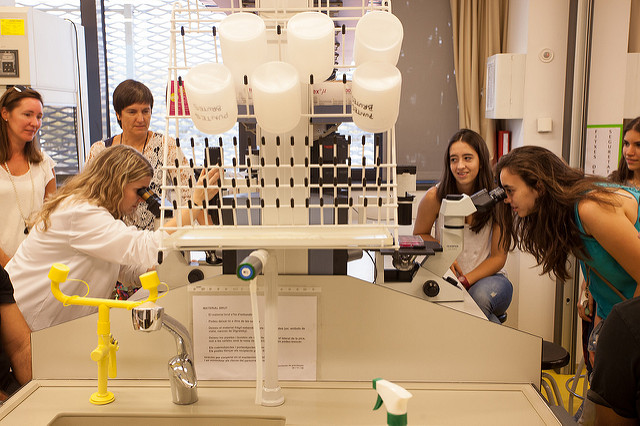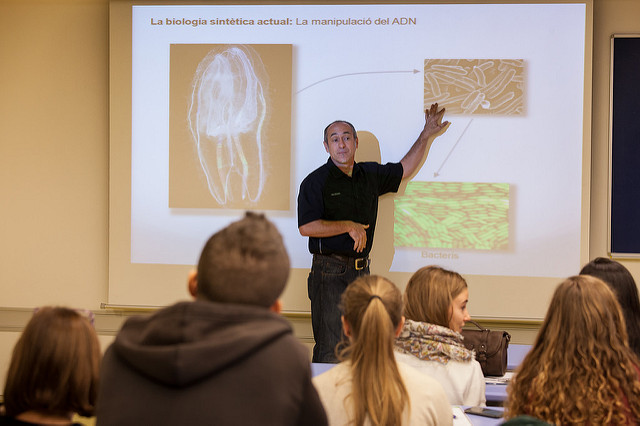New learning methods for science
New learning methods for science

The knowledge acquired by students throughout their university studies is not only based on the lessons they attend. Learning is strongly influenced by their previous experiences. Learning is described as a social process that results from combining the knowledge taught by teachers with that resulting from each student’s personal background. The Health Sciences Educational Research Group (GRECS) at UPF has developed a study to show the benefits of combining the classic university lecture-based teaching method with an active learning method: so-called problem-based learning.
According to several studies performed during the 1990s, people naturally learn concepts related to issues that concern them. Furthermore, learning is more fluid if it takes place through team activities with a clearly defined aim. For these reasons, for more than forty years several universities have used problem-based learning (PBL) for disciplines such as medicine, engineering, science and economics. It is a learning method in which students work in groups to solve a problems autonomously, searching, integrating and applying both basic and newly discovered concepts.
The PBL method has been shown to be very effective in developing skills that are clearly necessary for scientific degrees, such as teamwork, integrating information, critical thinking, communication skills, creativity and independent learning. The scientific team led by Jordi Pérez, principal investigator at the GRECS, launched a pilot project in which the PBL method was combined with traditional teaching: the PBL hybrid model (PBL-H). UPF’s Faculty of Health and Life Sciences decided to devote 20% of its course plan to PBL activities, with the remaining 80% following the traditional method.

According to the results of the study, the hybrid course plan improves the long-term retention of knowledge. This result is reflected in a 1.4-point increase in a test of long-term learning of those students whose degree course plan was based on the PBL-H method. "The fact of promoting the global understanding of the subject promotes the long-term retention of information", says Mar Carrió, GRECS researcher and author of the article. "Problem-based learning encourages students to understand new concepts in a defined context, linking their own knowledge and interests with the new challenges of the problem and through social interaction, either with other students or with the tutor."
In addition, through the PBL method, students learn to think critically and to develop transversal competencies. The authors conclude that the hybrid model implemented, with 20% given over to PBL activities, has increased students’ long-term learning while significantly enabling them to acquire basic skills for their professional career.
Reference work: Carrió M, Agell L, Baños JE, Moyano E, Larramona P, Pérez J. Benefits of Using a Hybrid Problem-Based Learning Curriculum to Improve Long-term Learning Acquisition in Undergraduate Biology Education. FEMS Microbiol Lett. 2016 Jun 13 DOI: http://dx.doi.org/10.1093/femsle/fnw159
